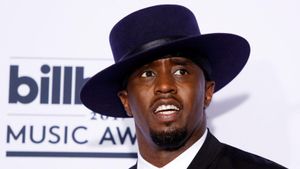Tensions have escalated between the United States and Panama over control of the Panama Canal, particularly after President Donald Trump suggested reclaiming authority over the key waterway. Trump’s comments have raised concerns about potential military action against the Central American nation.
During his inaugural address, Trump claimed Panama had violated neutrality agreements made when the U.S. transferred control of the canal to Panama in 1999. He alleged, without evidence, the canal had come under significant influence from China, asserting, "We think it's appropriate to take it back." His comments reignited fears of U.S. intervention.
The Panama Canal is not just any maritime route; it's the second busiest interoceanic waterway globally, linking the Pacific and Atlantic Oceans. Before its construction, ships had to navigate perilously around the southern tip of South America, often facing treacherous weather conditions. Today, approximately two-thirds of the cargo traversing the canal has connections to the United States. The canal was painstakingly built by American engineers, costing the lives of over 25,000 workers and significant international resources.
After years of anti-colonial pressure, the U.S. signed treaties granting Panama full control and sovereignty over the canal zone. These treaties emphasized the canal's permanent neutrality, set to come fully under Panamanian authority by December 31, 1999. Despite this, Trump alleged, "American ships are being severely overcharged and not treated fairly," pointing to rising tolls as evidence of Panama's poor management.
The controversy struck first with claims of Chinese influence through CK Hutchison Holdings, which has operated ports at both ends of the canal for over two decades. Trump insists this issue reflects broader U.S. interests, stating, "If any foreign power, particularly China, controls the canal, it would pose significant risks to U.S. security and economic interests." Transpiring during this rhetoric, Panamanian President Jose Raul Mulino has rebuffed the accusations, firmly stating, "I cannot negotiate, much less open a process of negotiations on the canal. The canal is Panama's."
Despite attempts to ease tensions, Rubios first trip abroad as Secretary of State is occurring against this backdrop of rising fear and uncertainty. He is set to meet with Mulino and tour the canal amid discussions focusing on migration—a departure from traditional cooperative engagements normally expected upon the appointment of U.S. diplomats.
Echoing Trump, Rubio acknowledged the canal's importance to American interests, noting: "We cannot allow any foreign power to hold potential control over it." It remains to be seen how diplomacy will shape future relations between the two nations amid these tensions, especially as experts express skepticism over Trump’s claims.
Many officials and lawmakers acknowledge the realities of global maritime politics, including the presence of several foreign-operated ports worldwide. During legislative discussions, Federal Maritime Commission Chairman Louis E. Sola stated, "The canal is managed by the Panama Canal Authority," which functions independently from foreign governments and has established its operational efficiency.
This conversation around control has unveiled concerns about America's competitiveness compared to other nations, particularly with the growing influence of Chinese companies. Law professor Eugene Kontorovich highlighted the challenges of asserting control over the canal without clear legal backing, emphasizing the need to approach such issues diplomatically rather than militarily.
Mulino expressed worries about the ramifications of the U.S. stance on Panama's economy, stating the canal is and will remain under Panamanian authority. A recent downgrade from JPMorgan over Panama's bonds reflects how Trump's rhetoric has begun to affect the nation’s financial markets.
Another major principle at hand is the assertion of fair tolls charged to vessels using the canal. Recent discussions revealed frustration over increased costs attributed to natural circumstances, such as drought, which has hindered water levels and operations at the canal. This point contradicts Trump’s views and highlights unexpected challenges posed by climate change, which are affecting canal capacity.
Interestingly, the focus on foreign control and influence has overshadowed the successes of the Panama Canal's management since it was handed over to locals. The waterway has seen billions generated through international shipping traffic, demonstrating operational standards well maintained over time. This has made clear the importance of fostering sustainable partnerships instead of merely focusing on perceived threats from abroad.
What lies next for the Panama Canal will depend significantly on the U.S. approach moving forward. Should the relationship improve between the two countries, it is possible the canal can continue thriving, reinforcing cooperative engagements rather than conflict. It seems evident; the most significant danger to American interests lies not within foreign influences but rather from the absence of strategic cooperation across borders. The ultimate test will be how the U.S. adapts to the shifting geopolitical winds and engages respectfully with its neighbors moving forward.



